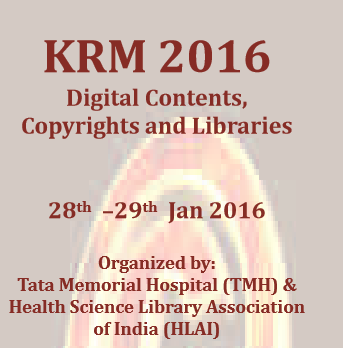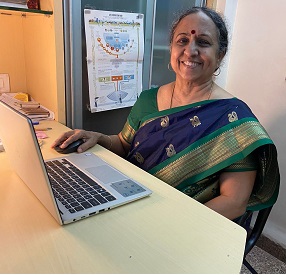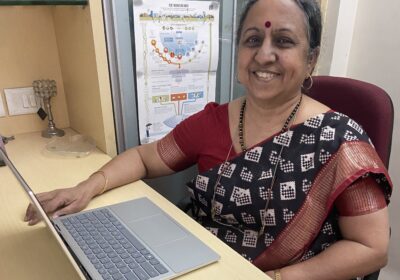In Jan 2016, I attended the event – KRM (Knowledge Resources Management) – organized by the Tata Memorial Centre’s Digital Library, with the Health Science Library Association of India. There were interesting talks on these issues by librarians, users and lawyers. I shared my experiences with the participating librarians, telling them what they could apply in their libraries (apart from the declarations that they take while providing copies):
Providing copies to users for academic / research purposes:
- Explain to users why you ask them to sign a declaration when they ask for copies. Tell them that once they have signed, they cannot make further copies and distribute them
- Libraries in the developed world follow a “Rule of five”. In a single year, if they on behalf of their users, ask other libraries for more than five articles from a single journal, then they need to either subscribe to the journal, or pay copyright costs for further article requests
We need to be aware of this rule, and plan accordingly. (This applies to article that are published in the said journal, in the last five years)
Providing copies to users from the industry:
- Many academic libraries offer memberships to the industry, by which employees of the companies are permitted to use the library. While this is a good gesture, libraries need to note that offering photocopies of articles / book chapters, just by virtue of such membership, is not legal. People from the industry need articles for commercial purposes and need to pay requisite copyright fees. Ideally the library should encourage the industry to download the article from the website, paying the appropriate fee. In case the specific article is not available online, one can take a copy from the library, but must remember to pay the copyright fee via a licensing agency like the US Copyright Clearance Centre, or the UK Copyright Licensing Agency.
Many organizations are not aware of these details, and hence I advised librarians to share these details with concerned authorities and implement such processes in their libraries
Vasumathi Sriganesh




